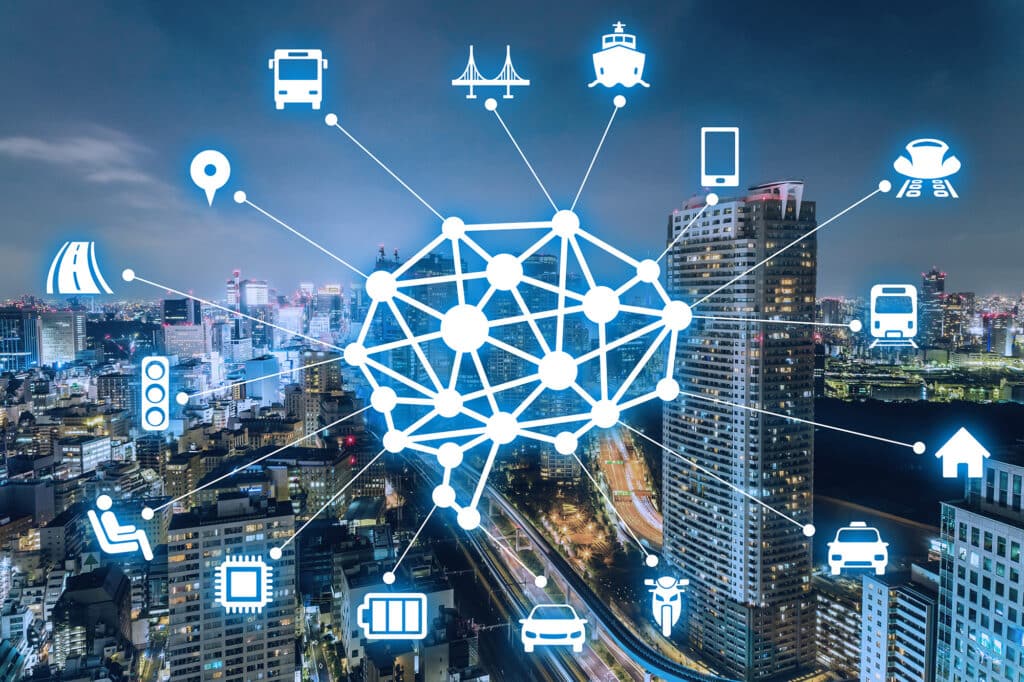In the coming years – few or many – AI (Artificial Intelligence) will affect us on a daily basis. Just how and to which extent is difficult to say, but areas such as transport, city planning, and decision-making are certain to benefit from artificial intelligence.
By Lars Martin Johannessen, April 29, 2022

In the upcoming future, the green and efficient future, we can no longer afford to be wasteful when it comes to energy. We can no longer afford to be wasteful when it comes to food. We can no longer be wasteful when it comes to nature. We can no longer be wasteful. In this context, we cannot afford any more bad choices. History books will reflect on our time as either a turning point, or a tipping point. What we do in the coming years could be era defining for humanity. Success or failure in the short terms. This obviously will not happen on its own. Research, demanding work, and most important, decisions will generate our outcome.
Decisions to go green, to capture carbon, investment in holistic solutions for a better future for all. Though decisions. So, who will have the guts and the knowledge to firmly stand behind their decision or choice, knowing that it represents either rescue or catastrophe? Because we can no longer afford the wrong answers to our problems. This is where any decision maker would be a lot more comfortable knowing that the choice they are making is the right one, obviously. Artificial intelligence proposes a solution here. Let it do the math, calculate the outcomes, describe the scenarios related to the different options. Here is your blueprint, this is how you save the world, this is how you destroy it.
Democracy or technology?
Perhaps the notion that AI could give us all the answers we need is somewhat utopian in nature. There are several questions related to how something like this would be implemented and put to use. The aspect of relinquishing power and responsibility to software is also highly debatable from a human point of view. Then there is the issue with so called black box AIs. Many would argue that transparency in decisions is a key aspect of any solid democracy. A software that produces answers and solutions without explaining its work and processes may deter people from embracing it.
There are ongoing projects who set out to solve this issue, displaying how artificial intelligence uses data to determine and find the best outcome. Yet, there is still the feeling that technology is evolving faster than our collective comprehension of it. The merging of software and politics will be controversial, and it should be. The percentage of people who fully understand AI and its ramifications are borderline insignificant compared to the overall population. This is in its own a democratic issue of immense importance.
I had to look this up.
He who designs, rules?
There are also questions related to abuse – how are we sure that the AI is programmed to benefit you and me, and not the owners who made it? In today’s volatile misinformation landscape, would we know if someone managed to tamper with the databases used in the decision-making process, or somehow alter the outcome in one way or another? Then again, the democracy we see in civilized societies around the world is not without fault, abuse, or corruption either. The question is most likely how we build an artificial intelligence that is incorruptible, which doesn’t inherit the bias from its creators.
If and when we manage that, the arguments against merging AI and democracy are rapidly decaying. The fact probably is that we can’t afford to let lack of knowledge in the general population hinder us from taking advantage of a tool which potentially could help solve some of our greatest challenges. There is good reason to believe that the future will be supported by artificial intelligence in terms of augmented decision-making. We are pressed on time, we are pressed on getting it right, and this might be the window of opportunity that artificial intelligence needs to merge into our lives.
